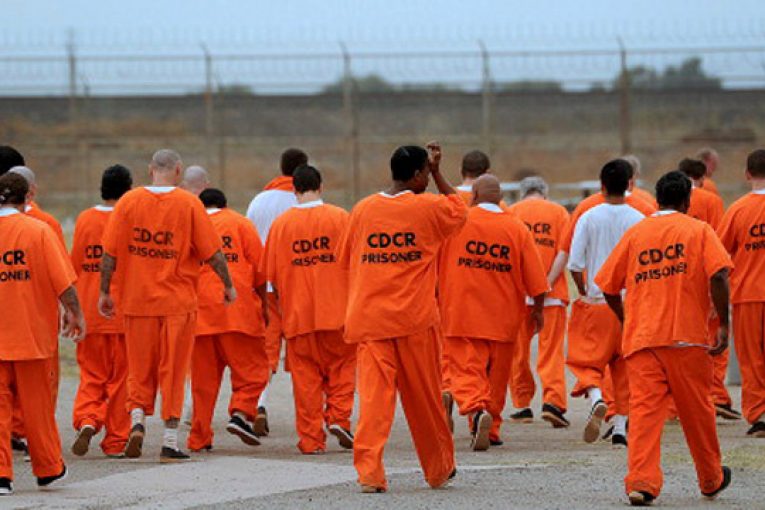
By Julietta Bisharyan and Nick Gardner
CDCR Confirmed COVID-19 Cases and Outcomes
As of Jul. 10, there have been a total of 49,417 confirmed COVID-19 cases in the CDCR system – 19 of them emerged in the last two weeks. 19 cases are active in custody, while 605 have been released while active.
A total of 48,566 confirmed cases have been resolved since the start of the pandemic, and 227 individuals have died.
In the past two weeks, California Health Care Facility (CHCF) has tested the most individuals, 89 percent of its population. Deuel Vocational Institution (DVI) has tested the least, 51 percent of its population.
A total of 131,217 patients have been tested cumulatively.
There are currently 98,561 incarcerated persons in California’s prisons – a reduction of 23,848 since March 2020, when the prison outbreaks first began.
Effect on Public
This section condenses information first reported in the Fresno Bee. For the complete account, visit https://www.fresnobee.com/news/california/article252610178.html
An attempt by 44 California District Attorneys to block peak-pandemic early release measures has been temporarily halted by a Sacramento judge.
The challenge, heard before Sacramento Superior Court Judge Shama H. Mesiwala, took aim at the CDCR’s relaxation of good conduct credit requirements intended to expedite releases in the departments already overcrowded prisons.
However, with COVID cases having subsided exponentially since the measure’s approval, skeptics of decarceration have revamped lingering concerns over the public safety risk of such initiatives. As of Friday, active cases throughout the CDCR sat at 22 across 35 institutions. At their lowest last month, active cases slipped below 10. In late December and early January, they neared 10,000.
The attorneys’ lawsuit specifically rebuked the unilateralism of the CDCR’s action, which came with no input from public figures nor the victims of crimes and their families. The CDCR, however, attests that these measures reduce public safety risk by incentivizing good behavior through what incarcerated individuals see as an increasingly tangible means of earning release.
In defending her decision, Judge Mesiwala weighed the impact of a quick reversion of credit calculation protocol, a burden she concluded would “fall heavier upon CDCR.”
Regardless, Judge Mesiwala recognized the validity of the prosecuting attorneys’ concerns, stating that there is a “likelihood that the plaintiffs’ claims will prevail that CDCR did not apply the proper rulemaking process in enacting the regulations.”
As it stands, the current credit protocol will allow incarcerated individuals convicted of violent crimes to earn one credit per two days, as opposed to one credit per four days stipulated under the previous rules. Non-violent individuals on their second or third strike will now earn one credit per day. Previously, they were rewarded one credit per three days.
Vaccinations
As of Jul. 10, 1,772 patients have received their first round of vaccines statewide. 71,035 are fully vaccinated. 73 percent of the total prison population is either partially or fully vaccinated.
1,644 staff members have received their first round of vaccines statewide. 34,021 staff are fully vaccinated. 54 percent of the total staff population is either partially or fully vaccinated.
Currently, Correctional Training Facility (CTF) has vaccinated the most incarcerated individuals, 89 percent of its population. Wasco State Prison (WSP) has vaccinated the least, just 51 percent.
Centinela State Prison (CEN) has tested the most staff members, 64 percent of its population. High Desert State Prison (HDSP), on the other hand, has vaccinated the least of its staff population, only 25 percent.
Reopening
According to CDCR, no facilities are currently in Phase 1 in CDCR’s road to reopening plan. Phase one indicates that the prison has facilities that currently have an outbreak or are recovering from a recent outbreak of COVID-19.
Twenty-seven facilities are in Phase 2, meaning there is partial reopening and modified gradual easing of Phase 1 restrictions.
210 facilities are in Phase 3, which indicates new normal programming. Reopening of programs and services will be reviewed and implemented weekly by the institution, according to the plan. If a facility experiences an outbreak, it must revert to Phase 1 restrictions.
Sierra Conservation Center (SCC) has the most facilities, all 20, under Phase 3. Mule Creek State Prison (MCSP) has the most facilities in Phase 2, seven facilities total.
CDCR Staff
Governor Gavin Newsom terminated executive orders that put into the place the Stay-at-Home Order and the Blueprint for a Safer Economy effective June 15, 2021, meaning State departments are no longer required to collect and report absentee data.
As a result, CDCR will no longer be collecting COVID-19 data for their employees.
The final cumulative employee COVID-19 data shows that there have been a total of 17,002 cases and 28 deaths among staff members statewide.
Division of Juvenile Justice
As of July 6, there are no active cases of COVID-19 among youth at the Division of Juvenile Justice (DJJ) facilities. 205 cases have been resolved since the first case was diagnosed in June 2020.
A Year Ago Today
A year ago today, CDCR announced the 33rd death statewide at San Quentin State Prison.
San Quentin’s CA Prison Industry Authority Furniture warehouse renovated into a 220-bed alternative care site to treat COVID-19 patients at the institution.
Through Project Hope, all incarcerated persons being released from San Quentin were offered housing in the community. The prison also mandated use of N95 masks for all staff to be worn while performing duties on institution grounds.
On July 10 2020, CDCR announced additional actions to reduce the population and maximize space system-wide to address COVID-19. It was estimated that about 8,000 incarcerated persons could be eligible for release by the end of August, in addition to the state’s reduction of about 10,000 persons since the start of the pandemic.
A year ago today, the number of confirmed COVID-19 cases across CDCR was 6,656. In California, there were 326,299 cases.